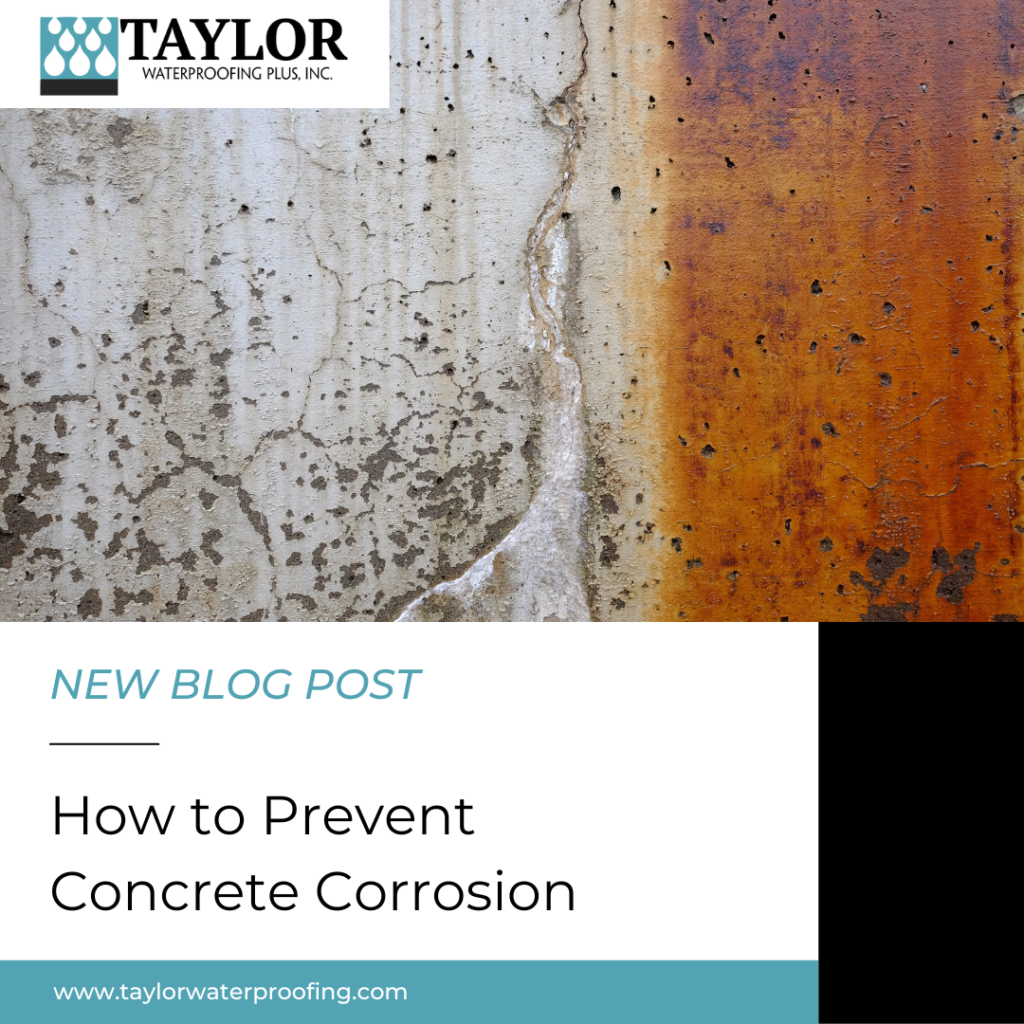What Causes Concrete Corrosion?
When carbon dioxide enters the pores of the concrete, it creates carbonic acids or concrete carbonation. This makes it easier for chlorides (salts) to break down the reinforcement rods. The rust on the rods can increase the original size of the rods by six times. This type of corrosion, also referred to as concrete cancer, usually goes unnoticed for years until it starts to break and chip away at the surface of the concrete.
There are other factors that can cause damage to your concrete, such as temperature changes, chemicals, and oils. If water gets into the pores of the concrete in the winter, it can expand and crack the concrete as the water freezes.
How to Prevent Concrete Corrosion?
The best way to prevent your concrete from corrosion and extend the life is to apply a sealant. This creates a hydrophobic barrier that water can’t penetrate. Besides preventing water infiltration, concrete sealers also protect against UV rays, salts, oils, and other chemicals. There are many types of concrete sealants and water repellents, depending on the concrete location and the look you want to achieve.
Protecting your concrete from corrosion is just one of the many benefits of concrete sealant. Other Benefits of Concrete Sealant:
–Protects against mold and mildew – Mold and Mildew can grow if the concrete is wet and doesn’t dry. Since the sealant acts as a water barrier, the pores are sealed and mold and mildew can’t grow within the concrete.
-Improves the appearance of the concrete – Sealants help the concrete look like new. There are also different tints, glosses, and colors so you can customize the look of your building.
-Increases the concrete’s longevity – Your concrete will last much longer with a sealant because it prevents and reduces damage.
Our team is highly skilled in sealing and repairing concrete. We can help you choose what sealant is right for the job. Give us a call or contact us through our website here to talk to one of our team members about your building’s needs.


